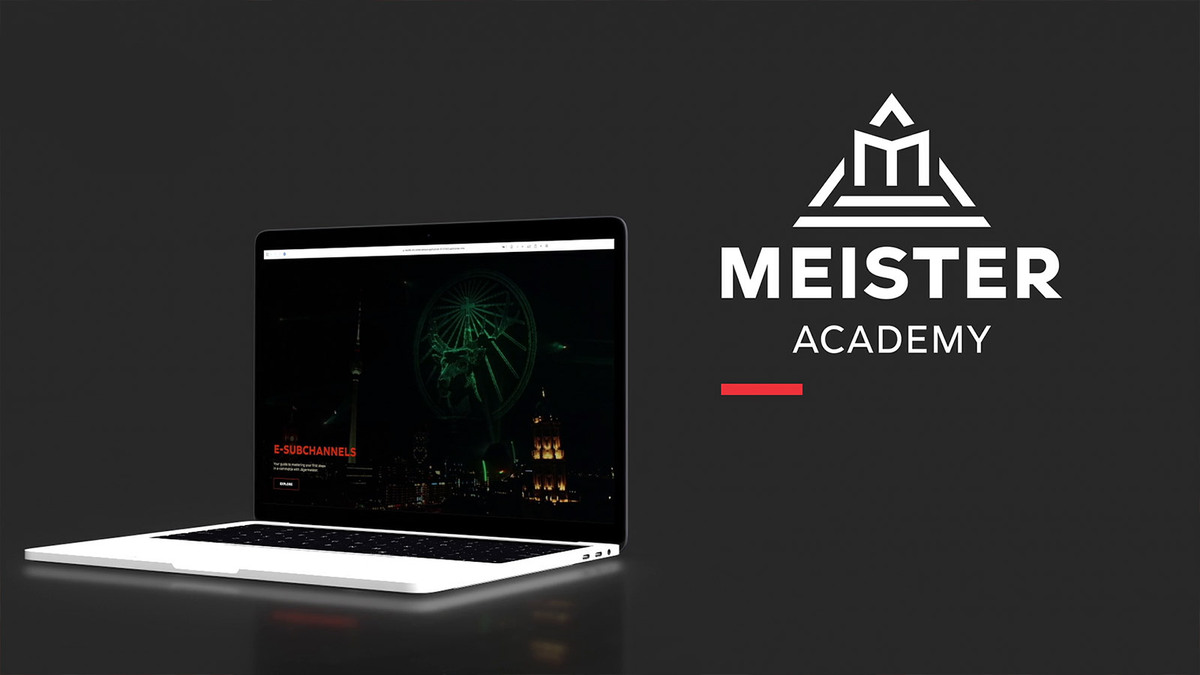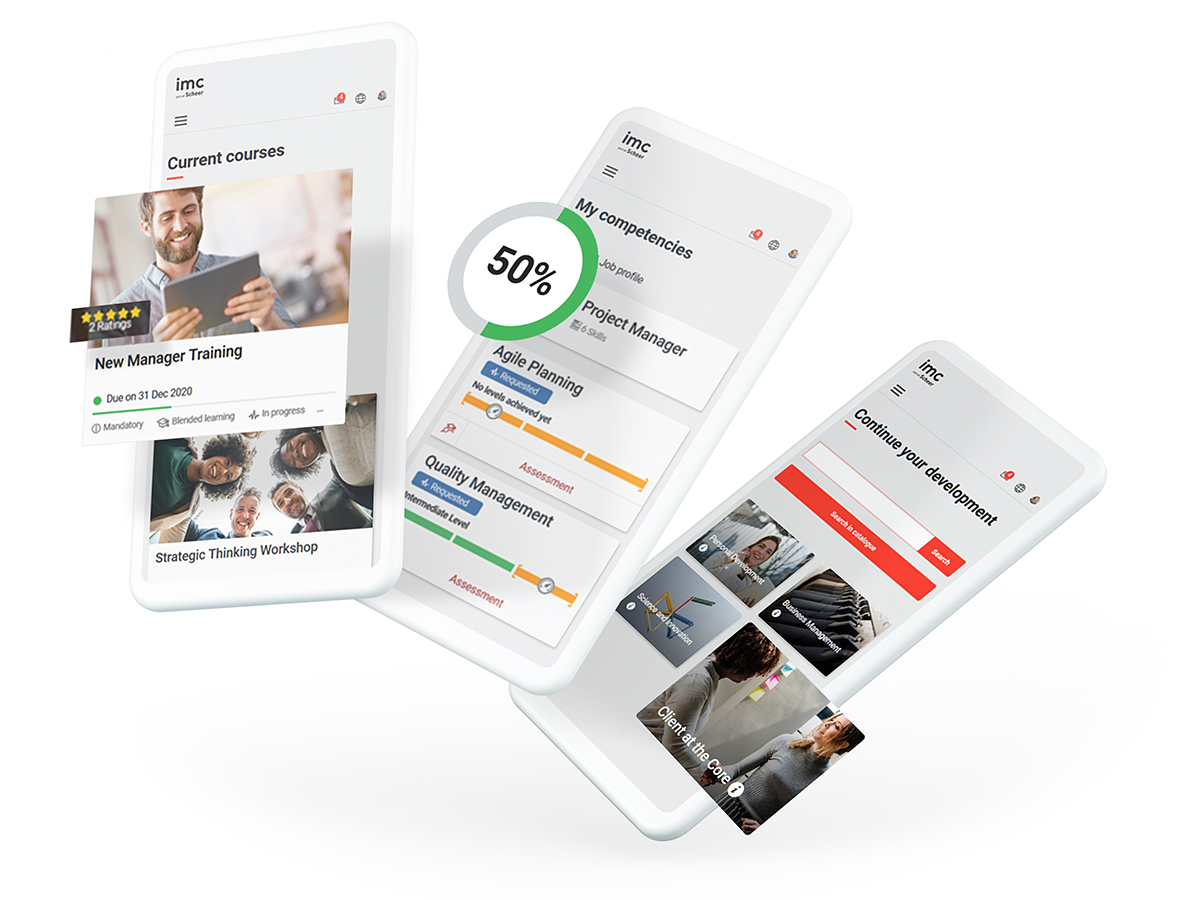
LMS Rollouts: Theory vs. Practice
A practical guide to implementing new learning platforms
Upgrading your LMS is a strategic move towards a more agile, scalable, and future-proof learning environment. Download the LMS Upgrade Guide now to take the first step towards enhancing your organisation's learning and development capabilities.

1. Analysis of requirements and objectives
Before selecting a learning platform, it’s important to analyse the company’s specific requirements and objectives. What are the skills that need to be developed? Which trainings are required? What learning methods will be most effective for the company’s employees?
Answering these questions carefully is an essential first step in finding a tailored learning platform that meets the company’s requirements.
Practical example: The REWE story
Once the REWE Group had decided to acquire a new learning platform, it set up several analysis working groups. It made a point of involving all stakeholders – everyone from IT to the works council, as well as all retail subsidiaries. Together, the working groups developed somewhere between 400 and 500 use cases with precisely defined processes and access privileges.
2. Selecting the provider and the learning platform
There are many learning platforms on the market. The key, therefore, is to select the one that best meets the company’s requirements. The chosen platform should be user-friendly and flexible. It must support a range of content types, including online learning courses, interactive modules and videos.
Practical tip: Meet your potential suppliers
REWE, STIHL, ALTANA and other imc customers recommend creating a catalogue of requirements and meeting with a shortlist of providers. Whether you call for tenders or approach specific providers directly, it’s important to focus on personal fit as well as the technical requirements. A new LMS is a long-term investment, so the relationship needs to work at both the interpersonal and technical level.

3. Employee training and awareness-raising, and LMS integration
Successful LMS implementation requires active workforce involvement and buy-in. It is therefore advisable to run training courses and awareness measures prior to implementation. This will focus learners on the benefits of the learning platform and familiarise them with its functions. Clear communication on the benefits and objectives of the platform is key to fostering a positive attitude.
Moreover, the learning platform should be implemented stepwise so as to ensure smooth integration. Key steps here include providing comprehensive guidance for the employees, creating learning groups and forums for collaboration, and integrating the platform into the company’s existing systems and processes.
Best practice case study: Effective LMS implementation on the menu at DoN
Austrian catering and restaurant company DoN can teach us a lot here. Implementing an LMS in a way that enables employees to be more effective hinges on ensuring that the employees understand why they have to change the way they work.
DoN’s answer was to create learning content, tutorials and the like in the lead-up to its LMS rollout. It did this using the imc Express authoring tool. The resulting content was then progressively released to its employees so as to build up their interest in the LMS.
Alongside this, DoN held town hall meetings with its employees. It also handed out DoN-branded “stress heart” key rings with QR codes linked to a fun quiz about the company. Result: the employees were very positive about the new system from the outset because they already understood its functions and purpose.

4. Performance measurement and feedback
It’s essential to regularly monitor and measure the learning platform’s effectiveness. This can be done through feedback, performance indicators and assessments of learning outcomes. The company must be prepared to act on this information and make adjustments to continuously improve its platform.
Practical example: Masterful learning at Jägermeister
A new system that is neither used nor optimised post implementation costs both money and employee goodwill. That’s why Jägermeister undertook platform tests with individual user groups right from day one.
It tested both the LMS itself and the groups’ individual learning content. This dedicated feedback is vital to Jägermeister’s ability to continuously develop and refine its LMS.

5. Ongoing development
A successful learning platform implementation is not a one-off project. It is an ongoing process, especially if it involves and LMS migration. Companies need to invest in the ongoing development of their learning platforms. Only then can they be sure that their platforms are keeping pace with changing needs and technologies.
That’s a fairly self-explanatory point that probably needs no examples. But it’s worth emphasising that all LMS systems – including established ones – need dedicated staff to administer them.
Ideally that should be on a full-time basis, since in the vast majority of cases, it is not feasible to administer an LMS “on the side”. This is because admins themselves need regular professional development. And there is always work to be done setting up new courses and learning paths, etc.
Summary
Implementing an LMS requires effective project management and the commitment of all key stakeholders. If the new system is embraced as an opportunity to break with outmoded structures and is used as part of dedicated change management, it can be transformational for the entire organisation.
Still have questions about LMS implementation? Keen to talk to our experts? Drop us a line!

Diary of an LMS
If an LMS wrote a diary - what would it say?
We thought about that and share some tips for LMS professionals, told a little differently...

Informal learning: Everyday hero of work
“Formal learning is like riding a bus. Informal learning is more like cycling.” We explain what this means and share some key facts and recomemndations

More about our LMS
If you would like to learn more about imc's Learning Management, check here for more information.
